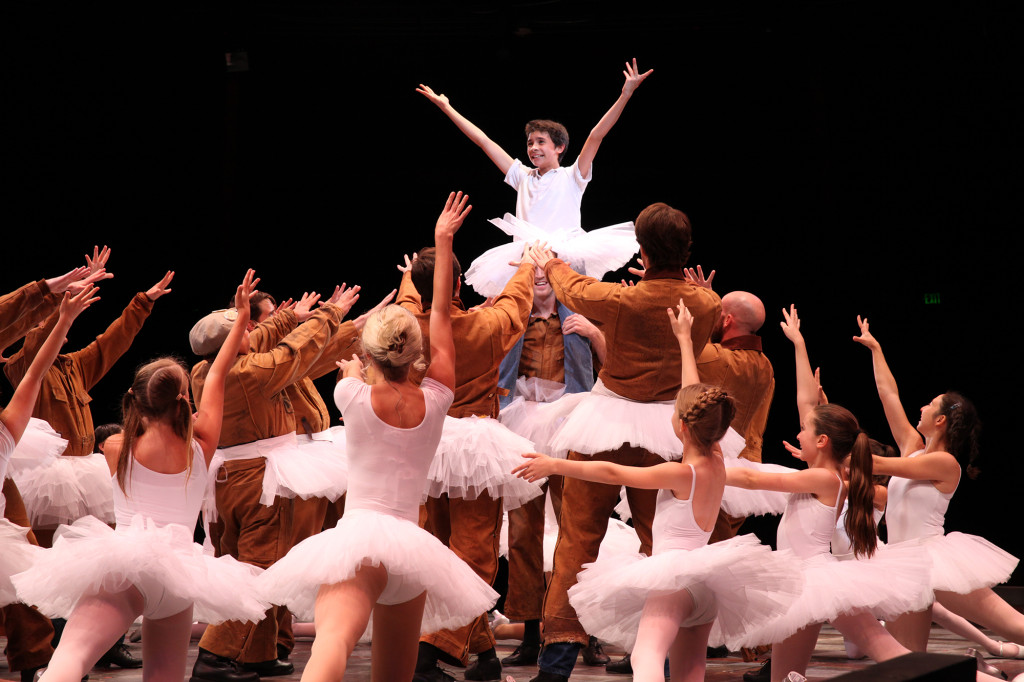
Photo © Paul Lyden
Presented by North Shore Music Theatre
Music by Elton John
Book and Lyrics by Lee Hall
Based on the Universal Pictures/Studio Canal Film
Direction and Choreography by Adam Pelty
Musical direction by Andrew Bryan
September 29th – October 11th, 2015
Beverly, MA
NSMT on Facebook
Review by Craig Idlebrook
(Beverly, MA) Leave it to children to show adults just how stupid they can be.
In Billy Elliot – the Musical, a young boy in a northern English town stumbles into a love of ballet in the midst of a coal miner strike in the mid-eighties. It is a good show that can achieve multiple goals during the course of the script, and North Shore Music Theatre stages a good one. Through skillful choreography and playful dance, this production shows how the political struggles of Thatcherism in the UK so closely resembles the nonsensical and almost playful twists and turns of a second-rate children’s ballet show. At the same time, at its core, this play is a simple coming-of-age story of a child growing up different and talented at a time when a community was straining to hold onto a core value of gray sameness.
This play lives and dies on the slender shoulders of its young star, Nicholas Dantes (Billy), who projects the perfect mix of poise and uncertainty throughout so much of the show. Dantes delivers the kind of performance that must make older actors wistful, doing everything right with just enough uncertainty to make it all believable and fresh. He is given a good counterpart in Janet Dickinson (Mrs. Wilkinson), playing the local ballet instructor who eggs on Billy. Mrs. Wilkinson is crafted to be a cynic with an unsteady vein of sentimentality and optimism, sort of like Miss Hannigan at the very end of the 1982 movie version of Annie. There is also real chemistry and camaraderie between Dantes and Alec Shiman (Michael), who plays Billy’s best friend. The web Dantes casts onstage with these actors is nearly flawless, only wavering when he is forced to project deep anger, an emotion which doesn’t seem to come easily and which the play sometimes dwells on too much.
The first act works best in this play, when the choreography is most purposeful and the coalmining community is called on mainly to express unified outrage against the heavyhanded tactics of the Margaret Thatcher’s government. We are drawn into the idiosyncrasies of life in a northern town. The second act flags, especially with the incomplete story arc of the healing of Billy’s family after the death (before the show) of his mother; the healing plays out at too much of a sitcom pace to be believable. (And may I just say, if I never see another random ghost walk onstage and look benevolent in a show, it will be too soon. Give the ghost some purposeful stage blocking, or they just look like someone nice randomly walked on stage.) Luckily, by then, we are hooked on Billy’s quest for self-discovery, and how it helps everyone transcend the bitter realities of life.
